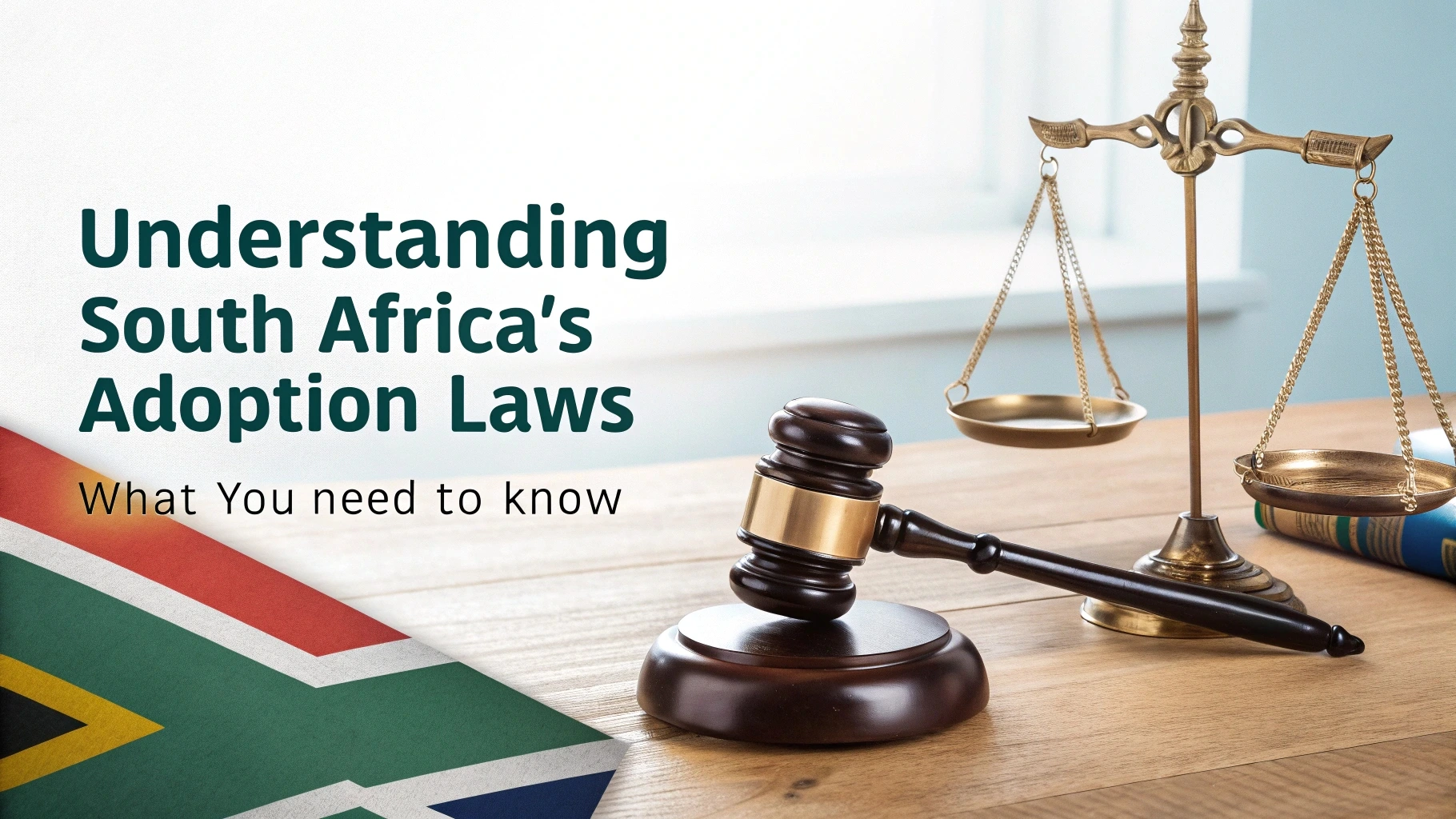Adoption is a powerful and life-changing process that offers children a permanent and loving family. However, before pursuing adoption, it’s essential to understand the legal framework that governs it in South Africa. This guide provides a overview of adoption laws, eligibility criteria, and the adoption process to help prospective parents make informed decisions.
Overview of Adoption in South Africa
Adoption in South Africa is a legal procedure that integrates a child into a new family, providing a permanent home for those who are vulnerable, abandoned, or orphaned. Governed primarily by the Children's Act 38 of 2005, adoption laws ensure that the best interests of the child are always prioritized. Whether you’re considering adopting a child domestically or from another country, understanding the process and legal implications is crucial.
Key Adoption Laws in South Africa
The Children's Act 38 of 2005 is the foundation of adoption law in South Africa. It ensures child protection and outlines the procedures for adoption. The Act was amended by the Children's Second Amendment Act 18 of 2016, with no major changes since then. It aligns with international standards, including the United Nations Convention on the Rights of the Child and the African Charter on the Rights and Welfare of the Child, emphasizing that the child’s well-being is of utmost importance.
Eligibility for Adoption in South Africa
Who Can Adopt?
- Age: Prospective adoptive parents must be at least 18 years old.
- Marital Status: Both married couples (heterosexual or same-sex) and single individuals are eligible to adopt. Stepparents may also adopt their stepchildren.
- Suitability: All prospective adoptive parents must undergo screening by an accredited social worker, assessing their suitability to provide a stable, loving home.
- Financial Status: While financial resources are considered, adoptive parents do not need to be wealthy, but must be capable of meeting the child’s needs.
Who Can Be Adopted?
- Children under 18: Adoption is available for children who are orphans, abandoned, abused, or in need of a stable home. These children are typically in foster care or child and youth care centers.
- Conditions for Adoption: A child can be adopted if they have no living parents, cannot be traced, or have suffered abuse or neglect. Children who are abandoned (with no parental contact for at least 3 months) are also eligible for adoption.
The Adoption Process
Adopting a child in South Africa involves several steps, all aimed at ensuring the child’s safety and well-being.
Step 1: Initial Assessment
The process begins when prospective parents are assessed by a social worker. This includes interviews, background checks, and an evaluation of their ability to care for a child.
Step 2: Notification and Consent
- Consent: Consent for adoption must be given by each living parent or guardian, and by the child if they are over 10 years old. This consent can be withdrawn within 60 days of giving it.
- Exceptions: Consent is not required in cases of parental abandonment, neglect, or if the parents are untraceable.
Step 3: Court Application
Once the social worker’s report is complete and consent is obtained, the adoption application is submitted to the Children's Court. The court reviews the case and considers the child’s best interests before issuing an adoption order.
Step 4: Finalization and Recording
When the court grants the adoption, the child is officially integrated into the adoptive family. The adoption is recorded in the Department of Home Affairs, and the child takes the adoptive family’s surname.
Types of Adoption in South Africa
Open vs. Closed Adoption
- Open Adoption: In an open adoption, the biological parents and adoptive parents may have ongoing contact or exchange information.
- Closed Adoption: In a closed adoption, there is no contact between the biological parents and the adoptive family.
Domestic vs. Intercountry Adoption
- Domestic Adoption: This involves adopting a child within South Africa.
- Intercountry Adoption: For foreign families wishing to adopt South African children, the process is governed by the Hague Convention on Inter-country Adoption. This process is more complex, with specific rules for international families.
Rights and Responsibilities of Adoptive Parents
Once an adoption is finalized, the adoptive parents assume all legal rights and responsibilities for the child. This includes the right to make decisions regarding the child’s education, health care, and general welfare. The biological parents' rights are terminated, except in the case of stepparent adoptions, where the biological parent may retain some legal rights.
Challenges in the Adoption Process
While adoption offers children a chance for a better life, the process can be lengthy and emotionally challenging. Delays in legal proceedings, the complexity of required assessments, and limited access to children needing homes can make adoption difficult. Additionally, inter-country adoption introduces extra hurdles due to international regulations.
Support and Resources for Adoptive Parents
There are various NGOs and government resources available to support adoptive parents through the adoption process:
- Department of Social Development: Provides adoption services and guidance.
- Department of Justice and Constitutional Development: Offers official forms, court details, and other legal resources for adoption.
- LegalWise: Provides legal guidance on adoption issues.
Conclusion
Adoption in South Africa is a rewarding but complex process, designed to protect the child’s best interests and ensure that they are placed in loving, capable homes. Whether you're adopting a child within South Africa or internationally, understanding the legal framework, eligibility criteria, and adoption process is essential. By ensuring that all steps are carefully followed, prospective parents can provide a child with the stability and care they need to thrive.
For more information or to begin your adoption journey, visit the Department of Social Development or Department of Justice websites, or contact a licensed adoption agency for expert advice.
